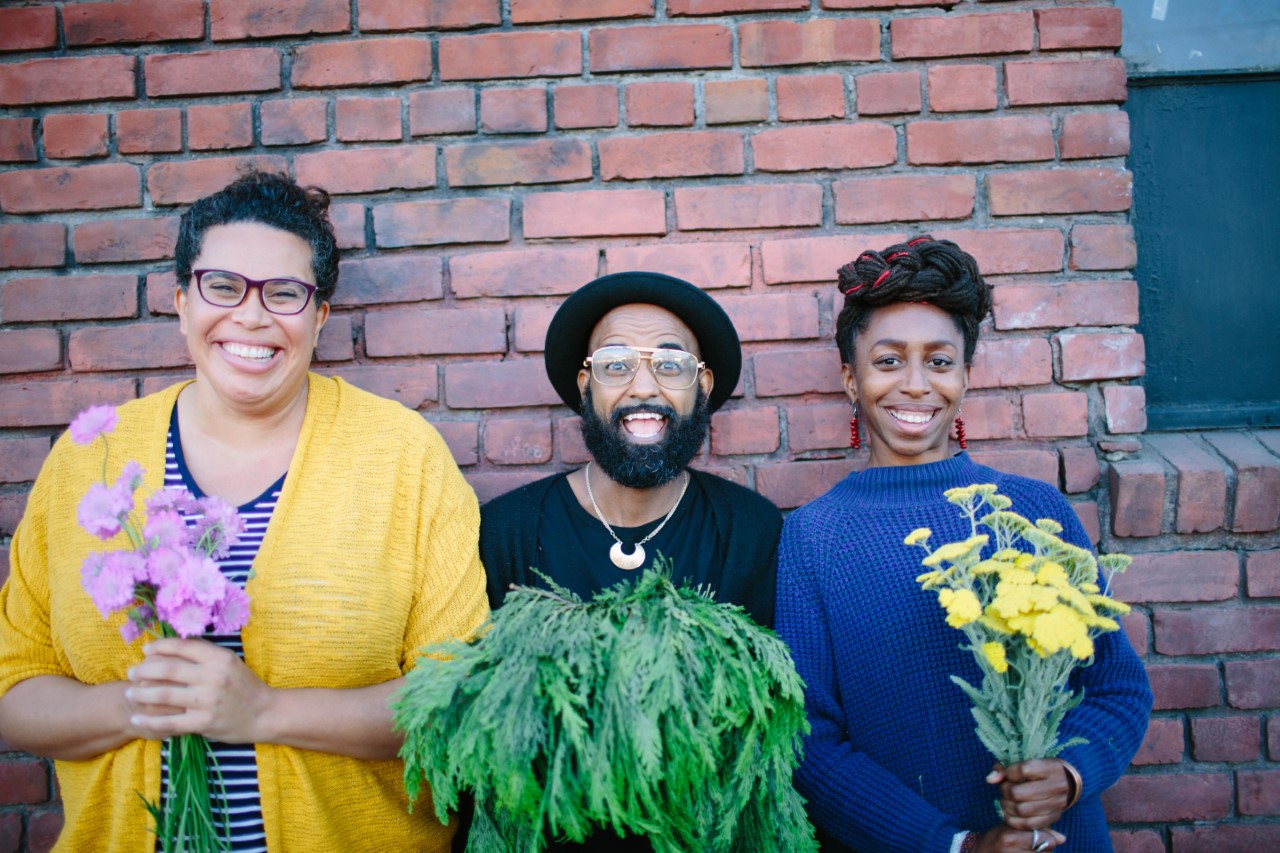Jennifer Atkinson: Why the Covid Gardening Boom is About More than Food
As Black Sanctuary Gardens founder Leslie Bennett says, gardening appeals to the “human impulse to be in relationship with land and with each other.” (Bennett, left, pictured with collaborators Seven Asefaha and Elizabeth Foggie). Photo by Fox Nakai

IAS faculty member Jennifer Atkinson published an article on Why the Covid Gardening Boom is About More than Food with Earth Island Journal. The piece explores some of the reasons behind the surge in gardening's popularity during a time of pandemic, police violence, and protest. Atkinson interviewed University of Washington Bothell students and gardeners across the U.S., including the founders of Black Sanctuary Gardens, which creates gardens for Black women and the Black community in the Oakland area. As BSG founder Leslie Bennett explained, the impulse to garden goes far beyond food. Among the African diaspora she works with in Oakland, she identified multiple ways that working in the soil keeps the community going in hard times: "Gardens are healing, restorative, nurturing spaces where we can become better attuned to ourselves, increase our resiliency, connect more with the traditions and cultures that define us, and work to actively create the world we want to live in," she said.
After a dozen years researching American gardening history, Atkinson took up this question of why we garden in a 2018 book titled Gardenland. Aiming to evoke “Fantasyland” or “Neverland” in the title, her premise was that gardening is a way to indulge desires otherwise suspended in daily life. In short, gardening can be an unconscious act of seeking out what’s missing. Two years later, she argues, our pandemic gardening craze only reconfirms that point.
In a time of screen addiction and proliferating virtual experience, Atkinson writes, many gardeners are drawn to the opportunity to experience themselves as embodied beings, and connect to the larger body of our organic world: to elements of sun, rain, seeds and soil. She explained that gardening "reaffirms our membership in the larger community of life, and allows us to act in ways that help it flourish." Collaborators with Black Sanctuary Gardens confirmed that desire to be in relation to the land, but challenged gardening's conventional associations. As Atkinson writes:
Today, gardeners like Elizabeth Foggie, an Oakland artist and collaborator with Black Sanctuary Gardens, see that connection as the root of their practice, a way of resisting the ideologies of “a society that wishes us all to forget that we are nature, part of a larger collective unit.” In fact, Foggie prefers not to use the word “gardening,” explaining that it is “steeped in a history of classism, colonization, and leisure.” Instead, she uses the phrase “working with the earth,” which “points to the mutual benefit and cooperative relationship between the land and humans. It directly opposes the values of dominion over the earth,” she said.
Such reflections go a long way, I think, in explaining why this current moment has awakened such extraordinary interest in gardening. Before Covid-19, the biggest news story was the wildfires raging across Australia, and prior to that, the Amazon was burning. Our generation has seen oceans and rivers die, watched glaciers disappear, read headlines warning of a million species threatened with extinction. We’ve adopted terms like “nature deficit disorder,” “ecological grief,” “climate anxiety,” and “biological annihilation.” In some fundamental sense, our addiction to virtual experience may be a symptom of this loss, a way of seeking substitute pleasures as contact with wildness disappears.
Surely this loss is also connected to the popularity of stories about nature’s resurgence during the pandemic. In a time of death and accelerating climate disruption, we long for signs of nature’s resilience. We want to believe that, if given a moment to breathe, nature will spring to its feet once again. We cheer at images of peacocks in Wales, coyotes crossing the Golden Gate Bridge, mountains suddenly visible from densely-populated cities — even tiny seeds sprouting in the backyard.
